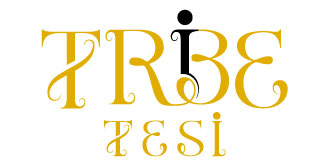In the vibrant tapestry of humanity, the African woman stands tall as a pillar of strength, resilience, and grace. Rooted in a rich heritage and diverse cultures, she embodies the spirit of her ancestors while blazing a trail towards a future filled with possibilities. Being an African woman is a tapestry woven with multiple threads of tradition, modernity, and empowerment. In this blog piece, we embark on a journey to explore the multifaceted nature of African womanhood and the remarkable qualities that define this identity.
1. Celebrating Diversity:
Africa is a vast continent with over 50 countries, each boasting its own unique cultural tapestry. To be an African woman is to be part of a tapestry adorned with a kaleidoscope of traditions, languages, and customs. From the Berber women of North Africa to the Maasai women of East Africa, and the Yoruba women of West Africa, diversity is woven into the very fabric of African womanhood. This diversity nurtures a sense of belonging and provides a platform for women to embrace their individuality while honouring their collective heritage.
2. Resilience in the Face of Adversity:
African women have faced numerous challenges throughout history, from colonialism to patriarchy to gender inequality. However, their resilience shines through even in the most difficult circumstances. They have been at the forefront of social, political, and economic movements, fighting for justice and equality. From Wangari Maathai, the Kenyan environmentalist, to Miriam Makeba, the South African singer and civil rights activist, African women have left an indelible mark on history through their unwavering determination and courage.
3. Nurturing and Empowering Communities:
The African woman is often the heart of her community, playing a pivotal role in nurturing and empowering those around her. She is a source of strength and guidance, instilling values of compassion, love, and unity in her family and society. African women have been instrumental in fostering education, healthcare, and economic development within their communities, ensuring a better future for generations to come. Through their leadership and entrepreneurial endeavours, they inspire others and break down barriers, creating pathways for progress.

4. Embracing Modernity while Preserving Heritage:
In today’s rapidly evolving world, African women adeptly navigate the complexities of tradition and modernity. They are pursuing careers, and making significant contributions in various fields, including technology, science, politics, arts, and sports. While embracing progress, African women remain deeply rooted in their cultural heritage, passing down age-old traditions, storytelling, and wisdom to future generations. This balance between tradition and progress is a testament to their ability to adapt and thrive in a changing world.
5. Fostering Sisterhood and Solidarity:
African women understand the power of sisterhood and collaboration. They foster a sense of unity and solidarity, recognising that their collective strength is greater than the sum of their individual achievements. From women’s associations to social movements, African women come together to amplify their voices, uplift one another, and effect positive change. They advocate for gender equality, challenge harmful societal norms, and create spaces where their voices are heard and valued.
Being an African woman is a beautifully complex and multifaceted experience, characterised by diversity, resilience, nurturing, and empowerment. African women exemplify the strength and beauty that lies within the intersection of tradition and progress. They are the embodiment of hope, the guardians of culture, and the architects of change.
As I celebrate the essence of being an African woman, I recognise and honour the invaluable contributions they make to their communities, their nations, and the world at large.


1 Comment
I wish African women would feel like this everyday. The need to please others and forget themselves needs to stop. We are enough.